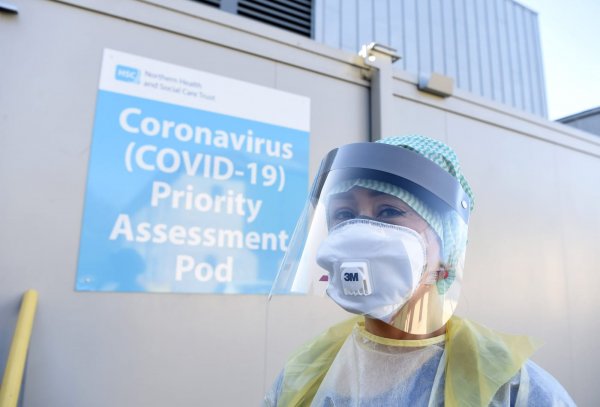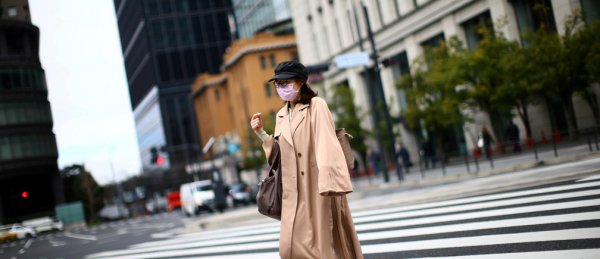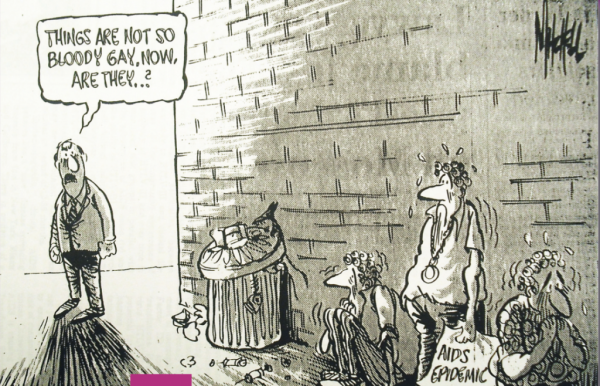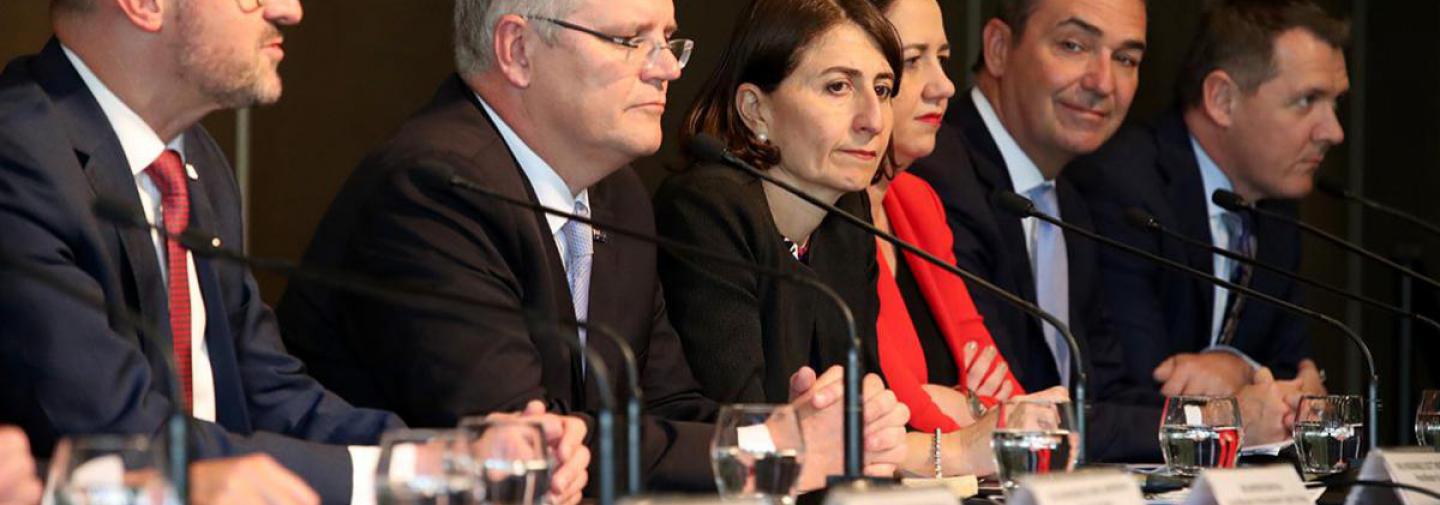The COVID-19 crisis created a new institution not recognised in Australia’s constitution which has overseen a rare and sustained period of cooperation and bi-partisanship between the federal, state and territory jurisdictions and consequently has been remarkably effective in Australia’s so-far stellar response to the pandemic.
The National Cabinet is made up of the Prime Minister and the Premiers and Chief Ministers of Australia’s eight States and Territories. Out of the nine members, two are women – Queensland’s Annastacia Palaszczuk and NSW’s Gladys Berejiklian. That makes up 22% of the National Cabinet.
Perhaps better, the government’s COVID Commission currently has two women and five men – a 29.5% representation. But that is only after one male member – Greg Combet – resigned in June and includes input from the Prime Minister and the Chief Medical Officer (both men), which is effectively seven men and two women – no where near a required 50%.

Women’s experience of COVID-19 has been different to those of men.
Why is that important? Because paying attention to women’s presence in leadership teams highlights that there are different points of view and lived experiences that should be considered in the government’s response and which might be different from those made by the “sea of white men” who usually make decisions on our behalves, said Professor Kim Rubenstein, Co-Director of the 50/50 by 2030 Foundation, when she participated in the ABC’s Big Ideas special panel for Constitution Day run with Australian Archives.
Paying attention to women’s presence in leadership teams highlights that there are different points of view and lived experiences that should be considered in the government’s response.
Professor Rubenstein discussed how structural issues are relevant to the way the Constitution impacts on women’s lived experience.
“While everyone says COVID doesn’t discriminate, it’s the impact of the disease on different groups in society [that does discriminate]. Structurally there are differences in the impact of COVID [on different members of society],” Professor Rubenstein told the host Paul Barclay.
The fact that women make up the majority of the frontline service provision and the fact that a larger number of women are in part-time and casual work who not only lost their jobs at a higher rate than men but were less likely to have come under the government’s JobKeeper safety net meant they were disproportionately impacted by the pandemic.
They also were also more harshly impacted by the removal of free childcare. And, as the vast majority of workers in the childcare sector, the first to be removed from JobKeeper.
“It’s a reminder that because there aren’t enough women in those leadership roles the impact on women as a group in society is not [necessarily factored into policy decisions],” Professor Rubenstein said.
 The hour-long program, which also included Paul Sendziuk, a historian from the University of Adelaide and Pat Turner, CEO of the National Aboriginal Community Controlled Health Organisation, runs tonight – Constitution Day – and is devoted to how federal, state and federal jurisdictions had managed COVID-19.
The hour-long program, which also included Paul Sendziuk, a historian from the University of Adelaide and Pat Turner, CEO of the National Aboriginal Community Controlled Health Organisation, runs tonight – Constitution Day – and is devoted to how federal, state and federal jurisdictions had managed COVID-19.
Dr Sendziuk made the comparison between the current unified approach of the National Cabinet and what happened during Australia’s last major health crisis –HIV-AIDS in the 1980s.
He described the then-Labor government under Bob Hawke as “enlightened” with Neal Blewitt as the federal health minister having to negotiate a national approach with four states that still had homosexuality as a criminal offence.

A vehemently homophobic cartoon from The Australian in 1985.
Unlike the COVID crisis, the federal government “had to take the lead because many of the states didn’t know what to do and in some cases were unwilling to do anything because of the political ramifications”.
(Joh Bjelke-Petersen, then Premier of Queensland, even declared – without providing evidence – there were no homosexuals in the Sunshine State.)
The point being that unless you consult with groups who are directly affected by a health crisis, the response is never going to be fully adequate.
Ms Turner, noted that, for once, the indigenous community inserted itself into the national conversation early, loudly and strongly on the vulnerability of aboriginal communities to COVID-19. They were listened to. This was in strong contrast to the position of Indigenous Australians around the drafting of the Constitution where indigenous Australians weren’t consulted. Thanks to the current consultations, to date, there have been just 59 positive diagnoses of COVID-19 among indigenous people in Australia and zero deaths.
To date, there have been just 59 positive diagnoses of COVID-19 among indigenous people in Australia and zero deaths.
Ultimately, consultation and data matters for all groups. If more women had been consulted throughout the crisis and more gender-specific data was available to policymakers, the outcomes would have likely been more favourable towards them, Professor Rubenstein said.
She also noted that it was not just about gendered representation in leadership positions but the different styles of decision making within leadership.
“Rather, she noted Jacinda Ardern’s dealing with the pandemic which not only included her actual decisions but her style of speaking and engagement that embraced the entire nation which showed how important varied leadership styles are also important for ensuring community support and responsiveness, particularly during times of crisis.





